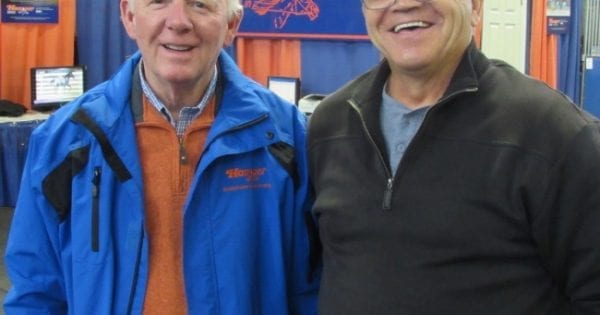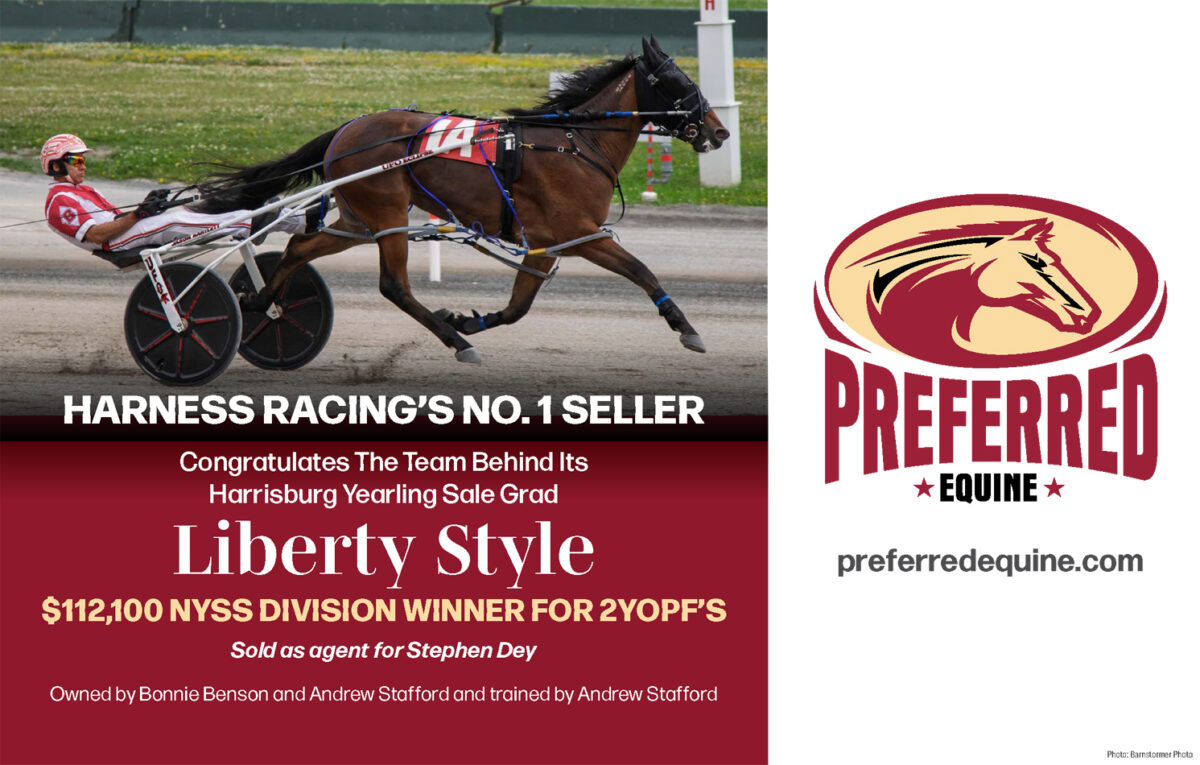Pennsylvania governor signs bill protecting horse racing’s gaming cut
The bill giving strong protection to the money the Pennsylvania Race Horse Development Fund receives from slot machines does come with increased gaming competition, but is still one of many reasons the sport’s future in the state appears strong.
by Dave Briggs
Sam Beegle said legislation signed Oct. 30 by Pennsylvania governor Tom Wolf that guarantees the current funding level to the Pennsylvania Race Horse Development Fund (PRHDF) from the state’s slots program couldn’t have come at a better time. The Standardbred Horse Sales Company’s massive five-day auction is set to begin today in Harrisburg, PA.
“It stabilizes everything,” said Beegle, the president of the Pennsylvania Harness Horsemen’s Association (PHHA). “It’s as good as we can guarantee it when you’re dealing with the state government.”
The PRHDF is funded by a percentage of revenue at racetrack casinos and standalone casinos in the state. In 2016, distributions totalled more than $240 million that went to purses at six tracks—three standardbred and three thoroughbred — breed development programs, and horsemen’s pension and health plans.
In recent years, the Pennsylvania General Assembly has taken to raiding the fund in order to cover budget shortfalls in other areas, but the new legislation should end that practice.
“The way it was written it has a clawback revision. If they mess with it again, then they have to give us back everything that they took,” Beegle said.
Hanover Shoe Farms president Jim Simpson, who is also the chair of the Standardbred Breeders Association of Pennsylvania, said giving back everything the state has taken out of the fund to date would amount to about $220 million.
“The Race Horse Development Fund is a restricted account and that means that the money has to be spent exactly the way it’s legislated, including purse money,” Simpson said. “The horsemen can’t take that money and do anything else with it, nor can the legislature take it. They have (been taking money out of it) and have been doing it illegally and now they can’t or they have to refund about $220 million.”
“That was discussed on the House floor when they were debating the bill, how much they would have to give back. So it’s going to be a deterrent,” Beegle said.
Was the deal made because Wolf and the General Assembly also agreed to a significant expansion of casino gaming that will serve as competition for the current slots?
“Probably,” Simpson said.
The expansion will allow people to bet online, in airports and at truck stops.
Under the measure, the state will become the fourth to allow online gambling, joining Nevada, New Jersey and Delaware. It also makes Pennsylvania the first state to allow online play for both commercial casinos and its state lottery, as both go in search of newer and younger players.
It is important to note that apart from being a gambling competitor, the horse racing industry will not receive a cut from the expanded gaming.
Beegle said the deal came about because of extensive lobbying on behalf of both breeds.
“The standardbred (people) stuck together. We stuck together from start to finish, the whole industry,” Beegle said.
“And the thoroughbreds,” Simpson said, “We argue a lot, but when it’s over we do stick together. That’s what keeps this thing going.”
That and reams of potent statistics about the economic benefit Pennsylvania derives from the horse racing industry.
“Let me give you one statistic. Hanover Shoe Farms is 3,000 acres in Pennsylvania of open space. We are three per cent of the breeding farm properties in Pennsylvania,” Simpson said. “We’re significant, the whole industry. There’s 18,000 jobs in the industry, but we’re three per cent of the open space in Pennsylvania and we’re a pretty big operation.”
The new legislation guaranteeing funding to the industry from the slots is just one part of the improvements made in Pennsylvania in recent years.
Simpson said the industry has made “big strides” including at the Pennsylvania Horse Racing Commission where some commissioners are mandated to come from the horse racing industry.
“There are nine commissioners – two thoroughbred commissioners, two harness commissions and then five legislative appointees. The good part about it was that the industry got a say in helping make some of these appointees, suggesting who they are,” Beegle said.
As of Oct. 1, Pennsylvania also began suspending any horse that tests positive for a Class 1, 2 or 3 drug or has a high TCO2 level.
Beegle said he believes one horse has already been suspended for having a high TCO2 level while racing at Harrah’s Philadelphia.
“We’re going to help clean it up, whatever we have to do. We want everyone on the same field,” Beegle said.
Simpson said Pennsylvania has come a long way in 15 years.
“A 400 per cent increase in purses helps,” he said, laughing. “But, if you’re going to race here, you’re going to play by the rules. That’s more important than ever. It always was, but a lot of people like us have busted their tails to get us to where we are — a lot of people, not just us.”
As the Harrisburg yearling sale begins today in earnest, the political news points to stability in a harness racing jurisdiction that is already one of the strongest in the world.

















